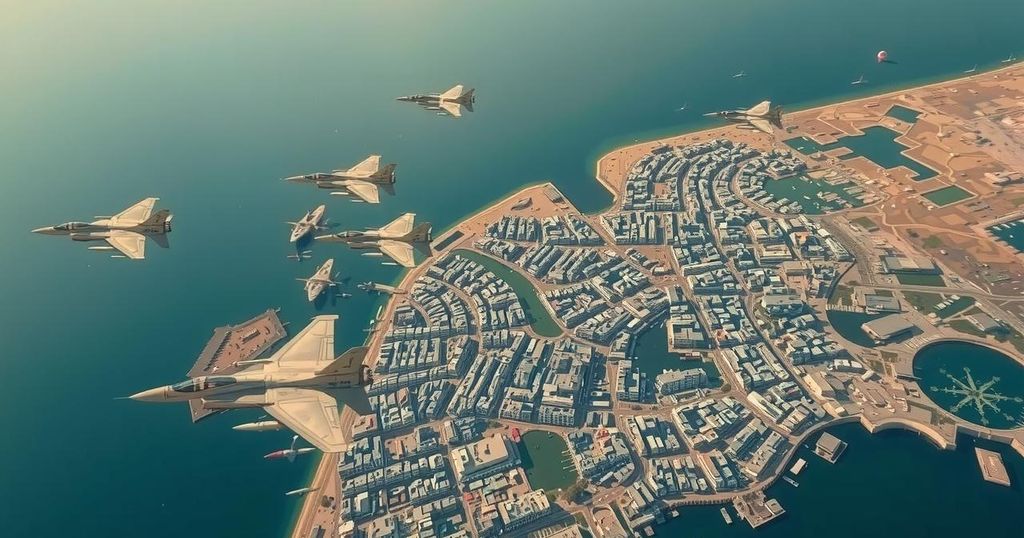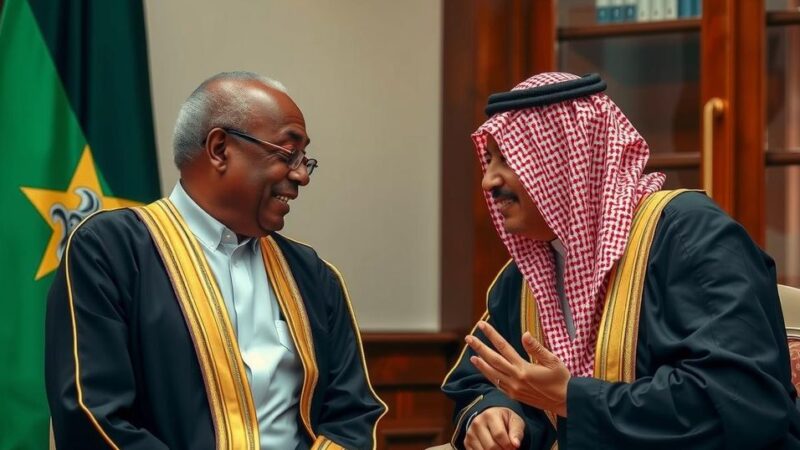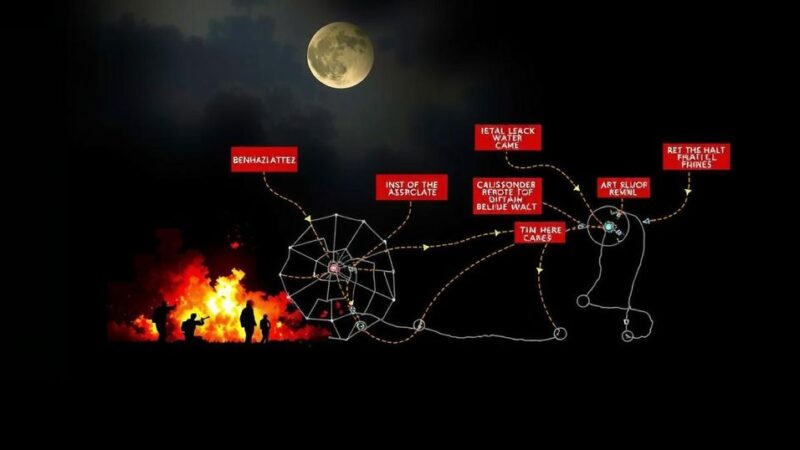Israel has conducted airstrikes in Syria and Lebanon amidst an escalating conflict involving Hezbollah and Iranian interests. Civilian casualties and infrastructural damage have been reported, with the ongoing violence stemming from the recent Hamas attack on Israel. U.S. military actions in Yemen against the Houthis further complicate the regional conflict dynamics.
Israel has conducted a targeted strike against the Syrian port city of Latakia, approximately 60 miles north of Lebanon, resulting in injuries to two civilians and damages to a military post, according to Syrian military officials. This incident underscores the expanding scope of the conflict, which has recently seen Israel intensifying its military operations against Hezbollah, the Iran-backed militant group, in response to threats to its northern territories. Over the preceding weeks, Israel has executed numerous airstrikes in Syria, targeting military facilities presumed to be aligned with Hezbollah and Iran. In related developments, Iranian Revolutionary Guard General Hossein Salami issued a stern warning to Israel, stating, “Do not repeat your mistake—if you misbehave, if you strike anything of ours either in the region or in Iran, we will again hit you painfully.” In Lebanon, airstrikes were reported near the eastern border, particularly around the town of Al-Khiam, suggesting a heightening of military activity in the region. While Beirut experienced relative calm, the situation remains tense amid ongoing military operations, with concerns mounting over the substantial toll this conflict is taking on civilians. According to the Lebanese Health Ministry, over 2,300 individuals have died in recent violent engagements, and nearly 77% of public schools have been rendered inoperative due to their conversion into shelters or their placement in conflict zones. The recent escalation in violence traces back to the October 7, 2023 Hamas incursion into Israel, which resulted in approximately 1,200 civilian fatalities. In retaliation, Israel’s military actions have reportedly led to an excess of 42,000 Palestinian deaths and extensive destruction in Gaza, displacing nearly 90% of its population. Furthermore, the Israeli Defense Forces recently announced the elimination of a noted Hezbollah commander, Hussein Awada, who was implicated in launching attacks against Israel from the southern Lebanese town of Bint Jbeil. Israel has also cautioned residents to steer clear of specific buildings in the Bekaa Valley, which have been heavily targeted in airstrikes over recent weeks. Concurrently, the United States has engaged Houthi rebel targets in Yemen using B-2 stealth bombers, targeting underground bunkers believed to be utilized by the Iran-backed group, further illustrating the broader context of military engagement within the region. Additionally, the United Nations Peacekeeping mission, UNIFIL, reported that Israeli forces had fired upon their observation post in southern Lebanon, resulting in structural damage to the tower and destruction of surveillance equipment, invoking further concerns over the safety of UN personnel in the area. The combination of these events highlights the multifaceted threats and the escalating conflict dynamics in the Middle East, heightening the need for diplomatic interventions.
The ongoing conflict in the Middle East, particularly between Israel and Hezbollah, has escalated dramatically since the Hamas attack on October 7, 2023. This conflict has not only affected interactions between the two parties but has also spread across borders involving other nations, such as Syria and Iran. Israel has been engaged in multiple military operations aimed at targeting facilities associated with Hezbollah and Iranian forces, which are perceived as threats to its national security. The civil toll of these operations has been exceptionally high, leading to substantial casualties among civilians in both Lebanon and Gaza, necessitating urgent international concern and response. Additionally, tensions involving Iranian forces and their threats to retaliate against perceived Israeli aggression further complicate the geopolitical landscape in the region, as do U.S. military operations targeting allied groups of Iran.
The recent airstrikes by Israel in both Lebanon and Syria illustrate the intensifying confrontation involving Israel, Hezbollah, and Iranian interests, culminating from the wider conflict provoked by Hamas’s October assault. The subsequent Israeli military operations demonstrate a concerted effort to mitigate perceived threats from Hezbollah while inadvertently escalating civilian casualties and regional instability. The implications of these actions raise severe humanitarian concerns and signal an urgent need for diplomatic efforts aimed at de-escalation and conflict resolution in the region. The situation remains precarious, with ongoing threats exchanged between military leaders and minimal respite experienced by affected populations.
Original Source: www.newsweek.com






